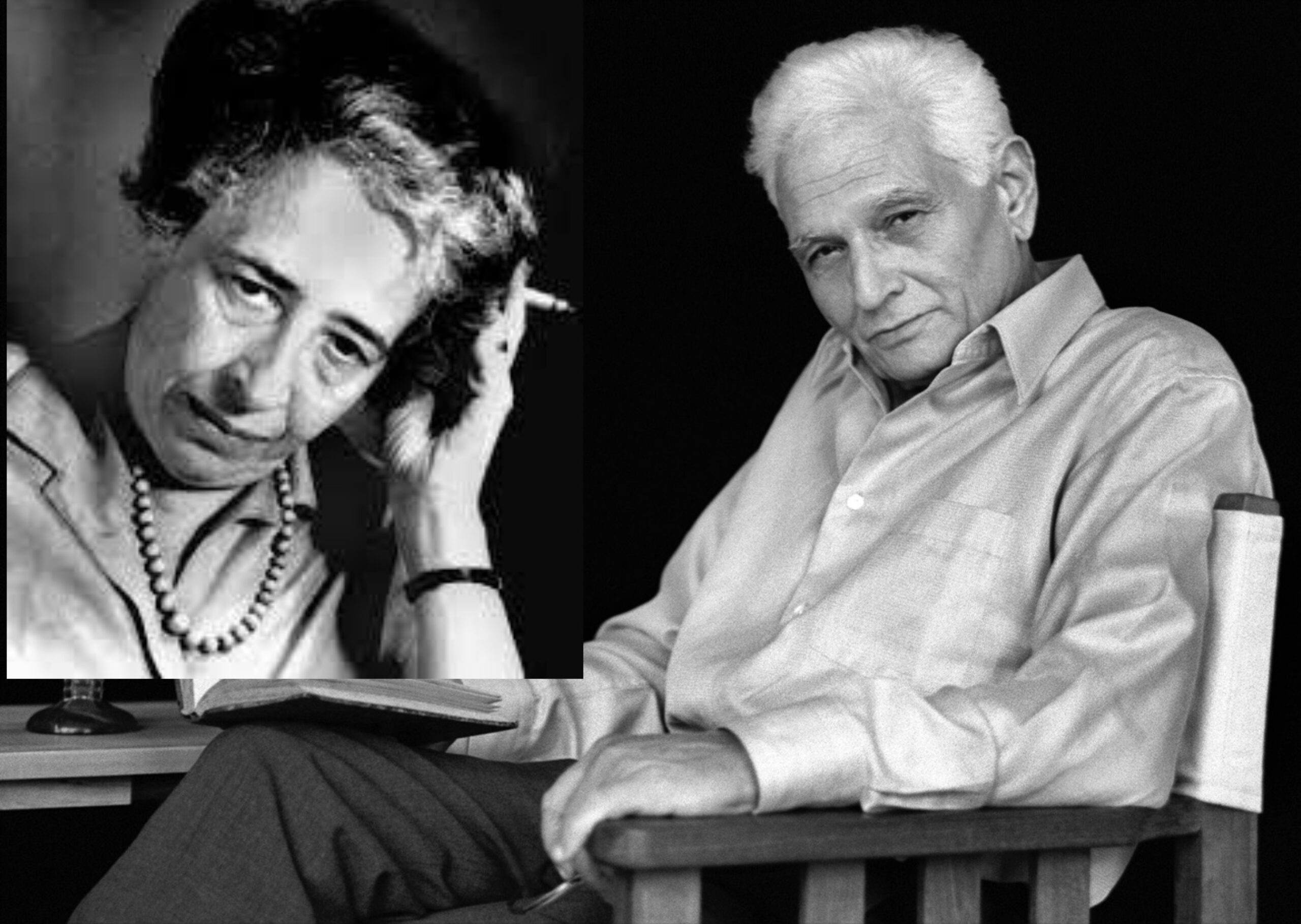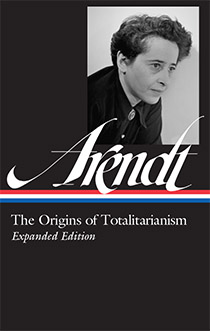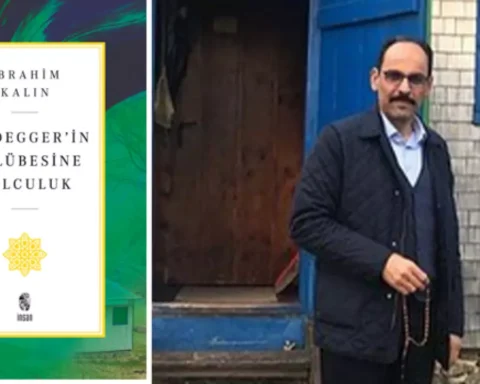French philosopher Jacques Derrida, who described himself as an “Arab Jew” born in Algeria, expressed doubt about whether the history of lies could ever be written. According to him, “It is difficult to believe that lies have a history. Who would dare to tell the history of lying? Even if we assume that lies do have a history, it must be told without telling lies.” Since the subject of the history of lies is lies themselves, and since the traditional definition of a lie involves the deliberate act of telling something untrue to others, while its opposite—whether external (factual) or internal (pertaining to a state of being)—is a true fact or condition, writing the history of lies becomes problematic. For lies do not yield to knowledge; in other words, it is not possible to treat lies as objects of knowledge without first accepting them as true—which is precisely what they intend to be. Lies cannot be the subject of knowledge; they are beyond the realm of knowledge. Therefore, the difficulty of constructing a history of lies stems directly from the nature of lies themselves. “A liar, by definition, is someone who claims to be telling the truth (this is a structural law and has no history).”
Derrida’s definition of lying, in this regard, becomes a definition that both challenges other definitions of lying and also interrogates the attempts to historicize lying—such as the distinction between classical lies and modern political lies found in the works of Koyré or Arendt. A lie is spoken with the assertion of truth by the one who utters it. A statement that does not carry such a claim to truth may be something else, but it is not a lie.
Starting from such a definition of lying, the difficulties of writing the history of lies can be roughly attributed to three reasons: First, the conceptual definition of lying renders it difficult to historicize. Is it truly possible to conceptualize a lie that is told with the belief that it is true? Second, can we even agree on what a lie is—and if so, is it possible to narrate a history composed entirely of lies? Third, can the history of lies be told as a true history within the structure of a historical narrative?
Derrida’s assumption regarding the history of lies, as can be seen, rests upon the question of whether lies—which he regards as beyond knowledge—can be conceptually identified at all. The reason why this master of deconstruction sees his own observations on lies as requiring (sometimes urgently) further deconstruction lies in this very conceptual definition. Is there really no such thing as a lie in and of itself? Can one not lie with the intent to deceive or mislead? Can a person not lie by deceiving or misleading themselves? Must a lie always be a statement made with a claim to truth? If so, how should we evaluate various attempts to write the history of lying—from Koyré to Arendt, or even Derrida’s own reflections on lying?
Derrida takes a noteworthy step here. In efforts to write the history of lies, either lying cannot be directly identified as such, so it is connected to various tools that allow for its diagnosis—ranging from language to media—and is thus narrated within a particular context, that is, by specifying it; or, the sanctity of truth is emphasized in an attempt to construct a history of lying. Looking at these efforts more generally, it becomes apparent that they speak from a position that excludes lies from history. The second approach is easier to understand: if lies are seen as the corruption of the sacred, then their opposite—truth or veracity—is taken to be original. However, the original cannot be historically narrated. This is because it is impossible to assert the truthfulness, authenticity, primacy, or essentiality of the original’s factual or situational manifestation without referring back to itself.
Of course, it is possible to state, like Kant, that lying under any circumstance is a violation of virtue and duty, and therefore unconditionally wrong. But Kantian unconditionality itself is ahistorical: “Kant’s definition of lying and the duty of honesty are so formal, so imperative, and so unconditional that they seem to exclude any historical thinking” (or, to add what Derrida does not mention: at least from the perspective of Kant’s political cosmopolitanism—which offers a refuge that evaluates history within the optimism of that shelter, and with the expectation that history will evolve toward the good and eventually culminate in a fully cosmopolitan world order—unconditionality becomes the goal that history must fulfill in the future).
Setting aside the second perspective—which attributes a certain sacredness or teleology to both history and truth and does not directly concern us here—the first is of particular interest. Derrida takes as an example Hannah Arendt’s writings on lying in politics. In short, his point is this: What becomes of lying when it is historicized by analyzing what it is in practice—and when this is done precisely by defining the concept of lying in terms of how it functions in that practice? As in nearly all his texts, Derrida bifurcates this question, complicates it, and turns it round and round upon itself; however, the main axis of the question is Arendt’s generalization regarding the transformation of lying. In her distinction between classical and modern lying, Arendt defines modern lying with two main characteristics: First, lying is always intertwined with modernity—and especially with modern politics—and second, this intertwining is so pervasive that it extends even to self-deception. Derrida’s objection to these two characteristics is again related to writing the history of lying: If lying is everywhere in politics and is such a common experience, then what has become of the lie? Even if it is not the norm, has it not been normalized? Moreover, is self-deception even possible?
Arendt offers an answer: While classical lying functions like a veil over the truth, modern lying displaces the original (or, to use Hans Blumenberg’s phrasing, since modernity always seeks to derive its legitimacy from within itself, it no longer searches for origin, originality, or essence, nor does it maintain a representational relationship). Following Derrida’s reading of Arendt, “modern lies are no longer concealments accompanying the covering up of truth; on the contrary, they are the destruction of reality or the original archive.” In Arendt’s words, “the difference between traditional lies and modern lies lies between concealment and destruction.” In the pre-modern world, lies conceal; in the modern world, lies go as far as destroying not only truth, but even factuality itself—such as when an unwanted person is removed from a photograph through technical manipulation, making it appear as though they were never there. To put it plainly, for Arendt, the best way to detect lies in modernity is not to identify what has been hidden or covered up, but to understand how something has been erased from the past, and thereby how factuality has been destroyed. In modernity, two plus two is still four; however, despite facts being publicly known and not dependent on agreement, conflict, opinion, or consent, it is still possible for a sentence like “Germany invaded Belgium in August 1914” to be distorted by partisans, obscuring a historical fact that initiated a world war. This is because, according to Arendt, in the modern era, images no longer refer to any origin, originality, or prior record; they no longer carry truth value—in a sense, they are copies of themselves. As will be discussed below, Derrida argues that Arendt stops halfway in her identification of lies and fails to carry the logic of her analysis through to its conclusion. But to fully grasp this argument, one must turn to the second characteristic of modern lying: the question of self-deception.
Derrida argues that self-deception—understood here also as lying to oneself, which Arendt presents as a feature of modern lying—cannot actually be subsumed under the concept of lying: “Lying to oneself is neither bad faith in its ordinary sense, nor in the sense given by Sartre [with his term mauvaise foi, which roughly indicates a psychological state of not acting sincerely]. Therefore, it requires another name, another logic, other words; it requires taking into account both a certain media-technological performativity and the logic of fantasy—or the symptomatology of the unconscious—which Arendt’s work gestures toward but never actually applies.” This is another masterful move by Derrida. Without refuting Arendt, he accepts her claim as valid but relocates it onto an entirely different plane. (It is worth noting in passing that, in doing so, Derrida ironically falls into a kind of subject-centrism that he has spent much of his oeuvre critiquing. By defining lying as a statement uttered with a claim to truth, Derrida isolates the liar—at least in terms of the law and its structure. Even when the statement is made to another, and assumed to be true, he evaluates the liar by enclosing them within themselves. This point, in turn, influences his assessment of Arendt.)
Derrida’s gesture—his suggestion that what Arendt labels modern lying may not be lying at all, and that it requires another name or even another logic—is, to put it simply, based on the idea that the logic of what is called modern lying is more or less the same as the logic of imaginative fabrication in literary creation. On the other hand, Arendt’s attempt to historicize modern lying as a history of self-deception, explained by a political view that “under fully democratic conditions, it is nearly impossible to deceive [others] without deceiving oneself,” also works in Derrida’s favor. Yet for Derrida, self-deception is impossible. What Arendt identifies as modern self-deception—summarized in her statement, “the more successful a liar is, the more likely they are to fall prey to their own fabrications”—is, for Derrida, ambiguous both in terms of the “psychology” it implies and in relation to the classical definition of lying as “always a deliberate and conscious act of deceiving another, while knowing exactly what one is hiding, and thus without lying to oneself.” If we also consider that the recipient of a lie is usually seen as an “enemy,” then the self is structurally excluded from lying to itself. Therefore, if self-deception or lying to oneself exists at all, it must be a different kind of experience—it requires another name or logic, because it undoubtedly originates from a different domain or structure. Derrida extends this domain “from intersubjectivity or the relationship with the other to the other within oneself,” and asserts that the “other within oneself” must at least in part be constituted as an enemy of the self.
In short, according to Derrida, self-deception cannot be called lying; it follows a different logic altogether, and at best, it may be called a fantasy; it may also be called ideology; and at the very least, in psychoanalysis, it is referred to as a symptom. Neither psychoanalysis nor the Heideggerian analytic of Dasein—both of which reject the classical notion of ego or self and are seen by Derrida as valid methods of attaining knowledge—are capable of properly accounting for the phenomena that Arendt refers to as lying to oneself or self-suggestion. Deception or trickery may certainly be possible, but to evaluate self-deception—especially in terms of a truth, honesty, or veracity that would, under fully democratic conditions, also eliminate the possibility of deceiving others—is to inevitably subordinate, trivialize, and randomize lying, regardless of the purpose, whether it be in the name of truth, of history, or of a hopeful teleology of human nature.
Thus, whether or not truth carries the risk of evaluating lies under the hypothesis of a radical evil or original corruption embedded in Judeo-Christian-Kantian human nature, it is nevertheless accepted in politics and society as a teleological and just regulatory idea. As noted earlier, Derrida sees the conceptualization of lying as highly problematic, and if such conceptualization is possible at all, he argues that the very act of defining it pushes the opposite of truth (that is, lying) out of history—thereby rendering lying ahistorical. (It is worth noting in passing that Derrida’s claims regarding self-deception can in fact be questioned by another logic than his own. For instance, in a recent work titled Deception and Self-Deception, Vladimir Krstić examines deception and self-deception from an epistemological perspective and reformulates the assumption that “if deception requires the intention to deceive, then you cannot deceive yourself” into a functionalist view. According to Krstić, the essential condition of any act of deception is that the misleading behavior or trait functions as misleading. In other words, one must look not at the statement but at the function. In this case, the self-deceiver does not fall into a contradiction or cognitive dissonance with others who are neutral and cognitively similar; to put it plainly, the individual is simply ‘not in their right mind.’ Accordingly, those who deceive themselves may exhibit “a sense of dissonance, discomfort, or behavioral tension” in such a state. However, this tension is not evidence of a conceptually problematic illogicality or an unconscious knowledge of the truth. The person merely suspects that something is wrong.” This functional explanation of self-deception does not appear to contradict the alternative logic or domain Derrida seeks in terms of fantasy, ideology, or symptom. What is most significant about this view, however, is that it shows self-deception is indeed possible.)
Generally speaking, Derrida’s reflections on lying may appear like a bomb dropped right in the middle of the relationship Arendt constructs between politics and philosophy. If we approach the issue from a perspective Derrida does not directly address—by attempting a freer reading—we may observe the following: If Arendt’s fundamental hypotheses regarding the relationship between politics and lies include, in one way or another, an effort to write the history of lies while in fact seeking to narrate the history of truth or veracity, and if the relationship between politics—as the dominant governing mechanism of the modern world—and lies is intrinsic to their very nature, then in Arendt, truth or veracity becomes a lie against lies, a lie deployed to control lies. This ultimately invokes the logic of immunity: injecting a small, harmless dose of a virus into the body in order to fight the virus.
However, we should not rush to judgment regarding Derrida’s views on Arendt. It must be admitted that Derrida, while perhaps not in principle, often in detail, produces interpretations that raise doubts about whether he has truly grasped the issue—and he does so with a typical public intellectual posture. In his writings that engage more directly with politics—particularly in his diagnostic and critical works on the Western order following September 11—he frequently employs the logic of immunity, arguing that the West has become ensnared in its own self-immunizing logic, and counters this with a call for unconditional hospitality. However (to briefly note a point that deserves separate treatment), when we consider the genealogical readings of the Western term communite by thinkers like Roberto Esposito and Jean-Luc Nancy, it becomes apparent that the “solution” Derrida offers—something also supported by Emile Benveniste’s dictionary of Indo-European concepts and terms related to society—is ultimately a contemporary adaptation of an Indo-European idea of communitas. That is, Derrida recommends the hospitality embedded in the “com-” prefix of communitas—which also contains the inner logic of immunitas. He likens self-immunity to a kind of suicide: “the act of destroying oneself in order to make oneself immune from one’s own immunity.” For example, he questions the democratic character of non-Western “democracies” by asking, “Can democracy protect itself democratically?” But according to him, instead of a self-immunity inclined toward suicide, it is necessary to move toward a logic of immunity that commands unconditional hospitality. Derrida’s assertion that moving beyond Eurocentrism is Europe’s own responsibility also rests upon this logic. Even though the question of what will replace Eurocentrism once it is transcended remains shrouded in uncertainty—and under this uncertainty, nothing more than “globalization” (or mondialisation, as Derrida prefers in French, meaning “world-ization”) may emerge from the geopolitical conjuncture—this uncertainty still frames the entire discussion.
Behind Derrida’s sense of responsibility lies an effort to break free—unconditionally—from the longstanding tendency to equate “community” (communite) with “immunity” in a narrow, nationalistic, racist, or nation-state-centric sense—closed in on itself, glorifying its own community, society, or nation. Yet (to put it in terms that read Derrida alongside Jean-Luc Nancy), as Heidegger’s analytic of Dasein emphasizes, Dasein is also Mitsein; it is not merely being-there by itself but being-with others. To draw a brief comparison: while in Turkish cemiyet refers to those who come together, forming a collective, in Western languages communite implies not only immunity or exemption but also a responsibility—an obligation, a duty—toward a fundamentally political or ontological togetherness. In recent years, thinkers from the phenomenological tradition, including Derrida, have sought to overcome this dual logic within communite: the logic of exclusion (immunity) and inclusion (togetherness).
Thus, the question of whether Derrida reads Arendt through the lens of his own agenda remains a serious one. One way to test this is to examine the implications of Derrida’s approach to the history of lying—namely, his claims that the very structure of a lie entails the assertion of truth and that this structure ultimately removes both truth and falsehood from history. Even if such claims deserve to be taken seriously, we must still consider what happens politically when lying is framed as fantasy (as in literature), ideology (as in Marxist theory), or symptom (as in psychoanalysis).
In his study of the history of lies, Derrida also addresses Alexandre Koyré’s essay “The Political Function of the Modern Lie.” He asserts that this text is historically grounded and reflects the time in which it was written—including its analysis of the relationship between lies and totalitarian systems. Derrida notes that Koyré had no difficulty portraying the “primacy of the lie” in totalitarian regimes, even those that did not formally declare it: “Such a system requires belief in a stable and metaphysically guaranteed opposition between truth and falsehood more than any other. Whether viewed from near or far, we have no trouble portraying this even today. The liar, by definition, is someone who claims to be telling the truth (this is a structural law and has no history), but the more a political system lies, the more it makes love of truth the guiding principle of its rhetoric.” This final remark echoes Koyré’s argument that totalitarian systems are founded on the principle of the lie.
The issue, however, is that Koyré—unlike Derrida—declares the metaphysical conception of truth itself to be totalitarian, and argues that totalitarian regimes replace this notion with propaganda grounded in race, nation, or class—each constructing its own “community” (communite), as if it were a secret society. He even uses this thesis to propose (problematically, perhaps) a division between “totalitarian anthropology” and “liberal-democratic anthropology.” While Derrida may be right to claim that the structure of the lie depends on the belief that what is said is true, it is nonetheless surprising—indeed scandalous from the perspective of deconstruction—that he fails to address Koyré’s anthropological division of the lie, which frames not only the nature of falsehood but also the value of truth and veracity. Moreover, Derrida’s claim that the relation between lies and totalitarianism is still observable today risks flattening the political terrain, as it implies that totalitarianism exists, in minimal forms, everywhere—thus suffocating the specificity of politics.
By contrast, Arendt approaches politics as a distinct domain. For her, politics is inherently representational, and the role of lying within it—especially in forms like self-deception—must be understood within this context. Most importantly, Arendt does not portray herself as a public intellectual beholden to a binary view of totalitarian regimes versus the free world, nor does she appear as an extension of U.S. foreign policy. Rather, she examines a rupture within American domestic politics in a way that reflects both the particularities of the history of philosophy and the distinctive character of contemporary politics. For Arendt, the origins of totalitarianism are not so external as to require the invention of distinct anthropologies. Instead, she argues that totalitarianism emerges from within Western political history itself and must be examined through a political-historical reading grounded in archives and capable of distinguishing fact from fiction. Its roots lie not in geopolitical assumptions or monopolistic claims to truth, but in elements that have made the West modern: “anti-Semitism (not reducible to hatred of Jews), imperialism (not reducible to conquest), and totalitarianism (not reducible to dictatorship).”
These distinctions provide essential reference points for investigating post-truth mechanisms in American politics, as well as for understanding where to look for similar dynamics in the Turkish context. They are not concerns that can be addressed merely by chasing after U.S. foreign policy in the name of public intellectualism.
Therefore—starting with the next essay—we may now begin to address Arendt’s theses directly.






